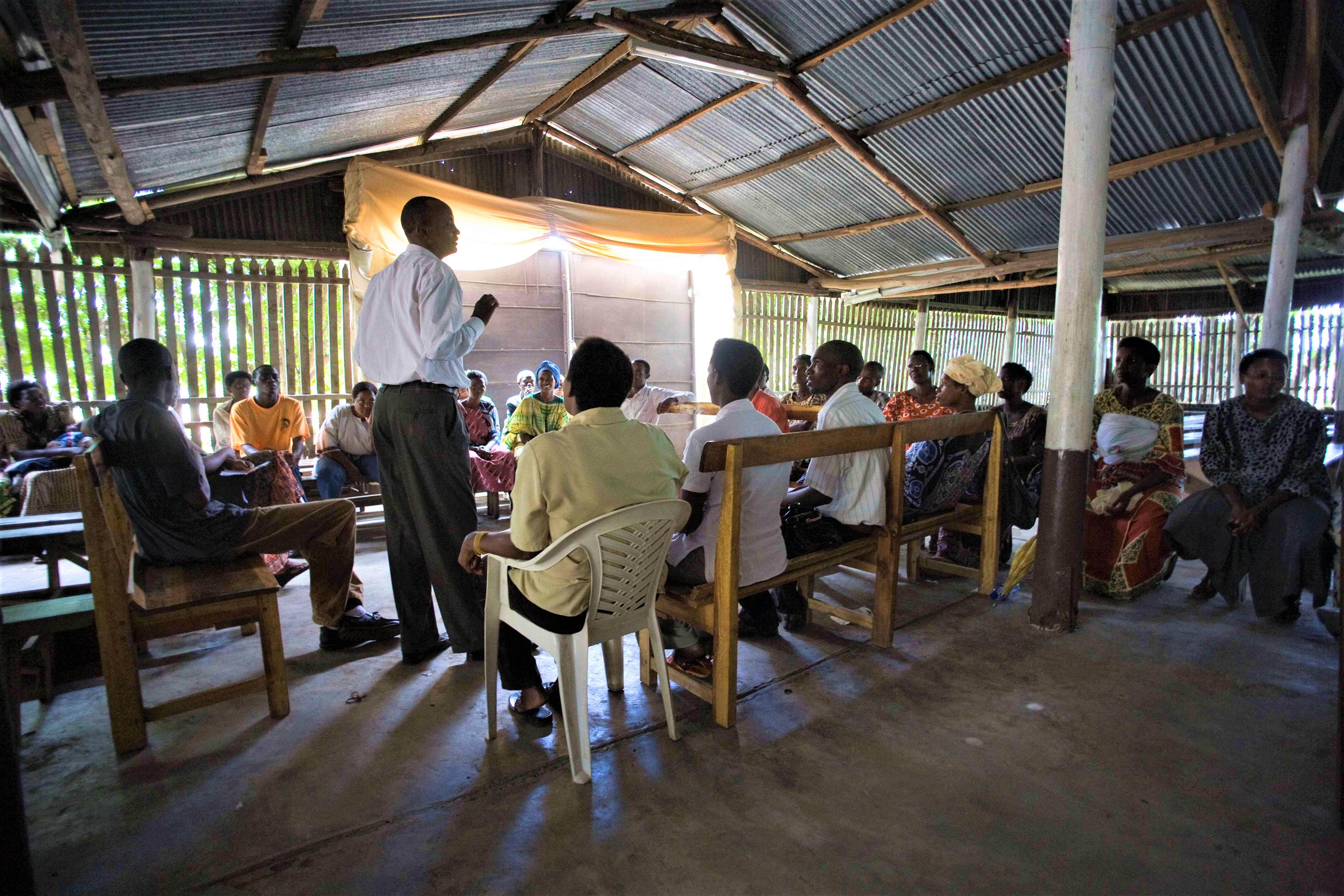Spotlight On: Individual and Institutional Capacity Building

Capacity-building is much more than the transfer of knowledge and skills to individuals. Effective capacity-building also improves the performance of organizations, sectors and systems and it lies at the heart of Abt’s approach to technical assistance. Technical assistance is unlikely to translate into stronger performance unless individuals and organizations have the skills and knowledge to execute their mandates. Organizations also need strong financial, technical and operational systems and resources to carry them forward into the future.
Ultimately, at both the individual and institutional level, improved knowledge, skills, resources and working conditions lead to improvements in the performance of key initiatives across a broad range of sectors and issues.

Methods
Abt builds capacity at all levels, from individuals to institutions.
When building individual capacity, Abt employs the principles of adult learning theory: goal-oriented, self-directed, experience-based, relevant, practical and collaborative. We’ve codified our best practices in our Discover, Design, Develop, Deliver and Evaluate (D4E) training approach. Interventions include training, coaching, mentoring and peer-learning.
At the institutional level we help organizations strengthen their vision, strategy, structure and performance management practices. Our institutional capacity-development strategies make use of a range of tools and approaches, and we select strategies that are consistent with the objective, resources available and time frame. Interventions can include training, developing tools and procedures, ensuring adequate staffing, clarifying roles and responsibilities, promoting stakeholder engagement and advancing techniques to measure progress toward goals.
Our evidence-based and responsive approach to capacity building has made a difference worldwide—from remote health clinics in Nigeria to the Massachusetts school system. For more on some of our institutional strengthening work, please see our Lessons Learned in Institutional Capacity Building.

Relevant Expertise
Developing Institutional Capacity
Health Finance and Governance (HFG) Project
Client: United States Agency for International Development (USAID)
For three years beginning in 2013, the HFG project worked with the Burundi Ministry of Health’s HIV/AIDS program (PNLS) staff to develop the organizational capacity to fulfill the core functions of planning, implementing and monitoring HIV and AIDS activities. This led to greater access to services and improved health outcomes.
HFG’s comprehensive approach strengthened PNLS’s foundational management capacity. We helped the staff develop strategies and plans, clarify roles and functions, implement activities, mobilize resources and exercise internal leadership and management.
The three phases of organizational capacity building were:
- Strengthening basic management practices
- Strengthening core functions
- Applying skills to carry out core functions
HFG techniques included training, participatory workshops, organizational retreats, individual coaching, task forces and regular follow-up.
The strengthened PNLS passed stringent Global Fund criteria and became the Principal Recipient in 2016 for Global Fund’s new Funding Model for HIV/AIDS.

Developing Institutional Capacity
Economic Governance and Inclusive Growth (EGIG) Partnership
Client: Department of Foreign Affairs and Trade (DFAT)
The Government of Papua New Guinea (PNG) is strengthening government revenue through its Medium Term Revenue Strategy (MTRS). The goal: have the resources to improve service delivery and implement policy priorities. The EGIG, supported by Abt PNG Management Services, works with the Internal Revenue Commission (IRC) to support capacity building at multiple agency levels.
EGIG builds the capacity of key individuals within the IRC, which had to overhaul its financial management systems. EGIG provides financial management support to the IRC’s chief financial officer and team for the complex transition process. EGIG ensures efficient and transparent systems and promotes accountability.
EGIG provides staffing support and works with the IRC’s executive team to develop and implement governance and policy arrangements to implement the MTRS. When the IRC had a manpower gap in a processing division, EGIG provided 60 professionals for a year as well as management and mentorship support. At the end of the year, the IRC absorbed the team into its organizational structure to continue the function.

Building Capacity at all Levels
Consumer Access and Adherence to Care for HIV (CAATCH)
Client: Health Resources and Services Administration (HRSA)
Project CAATCH uses evidence-based practices to address gaps in the HIV continuum of care for retention and viral-load suppression. HRSA considers the initiative itself, begun in 2015, a best practice. Abt supports the initiative through several layers of capacity building. We deliver educational sessions to promote patient engagement and retention and increase rates of viral suppression for MassCARE-enrolled clients.
Client level: MassCARE coordinators and peer teams co-teach core topics such as understanding basic lab tests (CD4, viral load and others) to build clients’ capacity to be their own health advocates.
Provider level: Abt builds the capacity of the MassCARE coordinators and peer team members through monthly coaching calls and intermittent training.
Program level: We hold quarterly in-person meetings for case conferences and to facilitate cross-team information sharing on implementation strategies. Abt reviews data for continuous quality improvement initiatives and to inform ongoing implementation strategies.
Systems level: Abt provides technical assistance to ensure the integration of the intervention into the clinic and the HIV clinical team.

Developing Knowledge, Skills and Technical Resources
Leadership Initiatives for Tomorrow (LIFT)
Client: Substance Abuse and Mental Health Services Administration
When the Affordable Care Act expanded healthcare benefits for 20 million people with mental and substance use conditions, the behavioral health workforce didn’t have the leadership in place to cope with the increase of patients. Project LIFT addressed this issue through the Behavioral Health Leadership Development Program (BHLDP), which Abt designed and implemented for the Substance Abuse and Mental Health Services Administration.
The BHLDP had two elements. The first was to improve knowledge and skills development to increase the number of behavioral health leaders who can address the needs of underserved communities. The BHLDP enhanced participants’ leadership competencies and kept them informed of developments in behavioral health care, general health care and health information technology. The second was to develop technical resources to support outreach to —and the education and engagement of—behavioral health workers and enhance allied professionals’ understanding of behavioral health needs. To do this, Abt developed and deployed the application for Project LIFT’s Consent2Share, an open-source tool that integrates health data through electronic health records and Health Information Exchange systems while ensuring privacy protections.
Contact Us

Micah Sorum
International Development
Rockville, MD
(301) 347-5050
